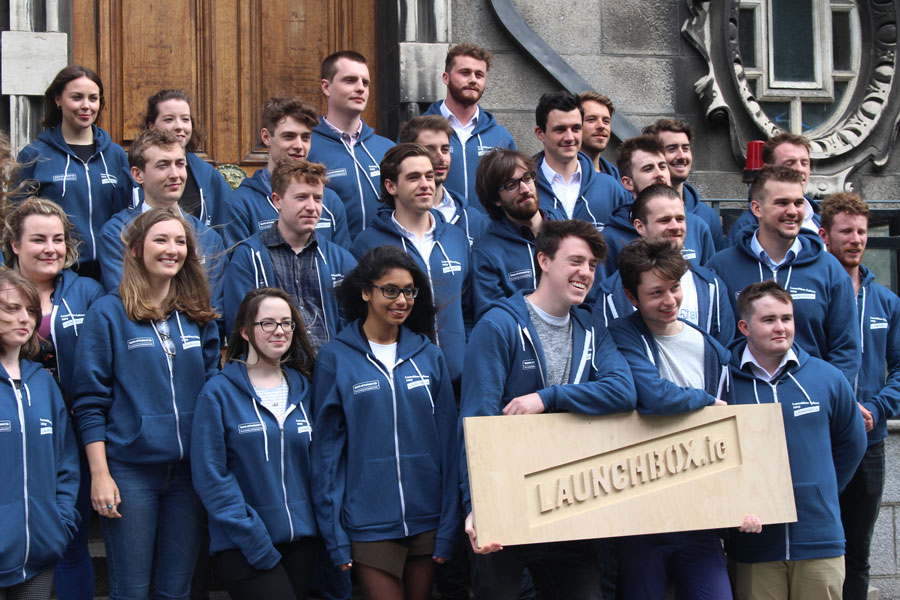Up to 200 of Trinity’s on-campus accommodation places have been reserved for students who are engaged in “entrepreneurial activities”, The University Times has learned.
Documents released to The University Times under the Freedom of Information Act reveal that the College’s accommodation advisors have been instructed to favour applicants who are “endowed with an entrepreneurial mindset and/or equipped with either specialist knowledge or the practical ability to start or support new and existing businesses”.
Students who have applied for Launchbox, Trinity’s startup incubator programme, will be given preferential treatment, the documents indicate. Though the system for favouring applicants has not been formalised, emails between Trinity’s Principal Entrepreneurship Promotion Co-ordinator, Dr John Grenham, and the Registrar of Rooms, Prof Emer Stones, outline the scale of its approach. “No more than 200 rooms should be reserved for student entrepreneurs”, Grenham said in one email.
In an email statement to The University Times, Grenham said that the move was an important one to demonstrate that “entrepreneurship was now a valid career choice for many graduates”. “Current and future Trinity students should be encouraged and inspired to start their own businesses, and setting aside a small number of rooms in this way demonstrates our commitment to doing so”, he said.
There are around 600 on-campus rooms. Emails also reveal that renovations to the Rubrics were funded in part by the Abu Dhabi Entrepreneurial Mindset Fund, with a view to offering the building’s new open-plan rooms to student entrepreneurs. The building has been vacant since the beginning of the academic year. The new ground-floor foyer of the building will include beanbags, whiteboards and free sushi and refreshments on select days of the year, the emails state.
Speaking to The University Times, Stones said that it should be noted that there are also “quotas of rooms set aside for scholars, international students, schemes in support of the Irish Language, Dublin University Central Athletic Committee and the Central Societies Committee”.
Favouring students who have engaged in entrepreneurial activities is “in keeping with College policies that suggest priority should be given to those who make a significant contribution to College and/or the wider community”, Stones said.
Asked about the proposal to designate Rubrics rooms for student entrepreneurs, Stones said that she thought “it was appropriate to house the denizens of the future in Trinity’s oldest building”.
The new approach to accommodation placements was discussed at a November meeting of the Student Life Committee. Minutes of that meeting reveal that neither Kevin Keane, the President of Trinity College Dublin Students’ Union (TCDSU) nor Damien McClean, the Welfare Officer of TCDSU, formally objected to the allocation. In a statement, both Keane and McClean said that they intend to challenge the minutes of the meeting, which “do not reflect the extent to which we dissented from these proposals”.
“I didn’t want to jeopardise the entire conversation, which also touched on accommodation fee increases”, Keane told The University Times.
In September, it was revealed that, for the third year in a row, Trinity was ranked as the top European university for producing undergraduate entrepreneurs supported by venture capital in a list produced by private equity research firm PitchBook.
Last year, Provost Patrick Prendergast praised the LaunchBox programme as a “cornerstone” of the College’s entrepreneurial efforts. Startups that participated in the programme have created 62 full-time jobs, while alumni from the first three programmes have raised over €3 million since 2013.
In 2016, the Hamilton Cafe was closed to make way for a new Bank of Ireland student “business incubation” hub. The space was opened as a new co-working space, to offer a space for students with startups of all sizes.
Editor’s Note: April 2nd, 2018
This piece, published on April 1st, 2018, is an April Fool’s Day joke. As far as The University Times understands, the College has no plans to favour student entrepreneurs in accommodation decisions.







